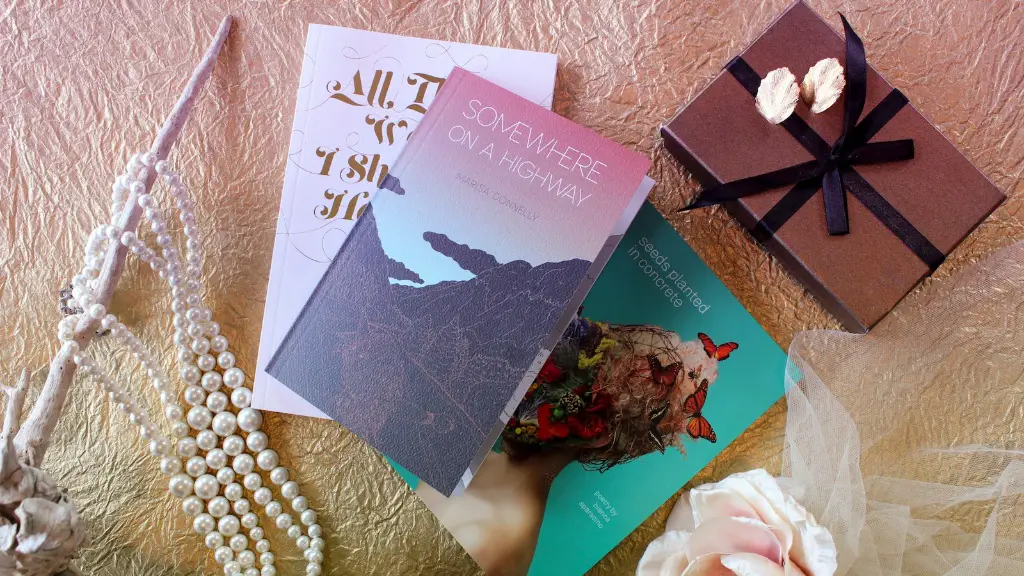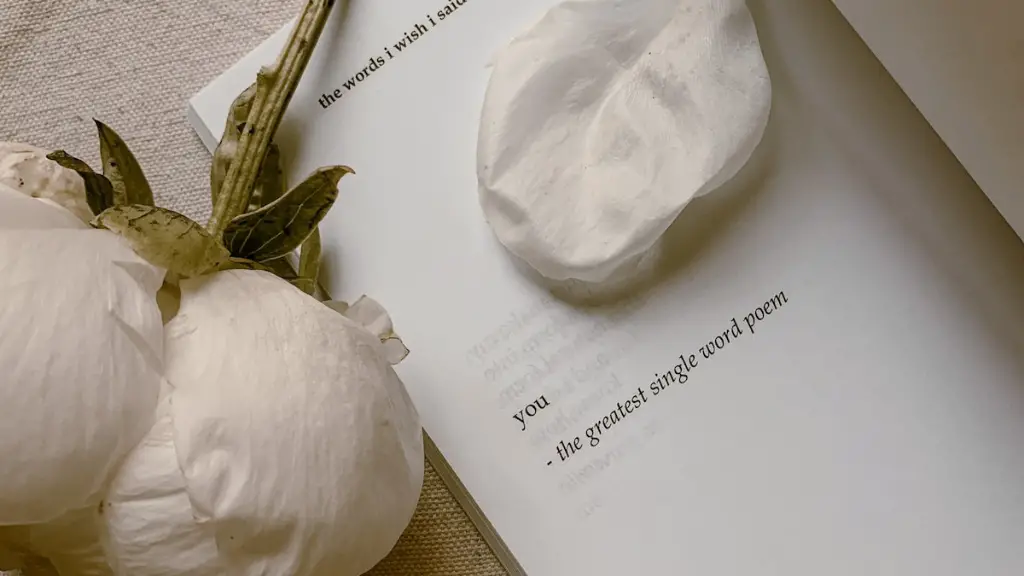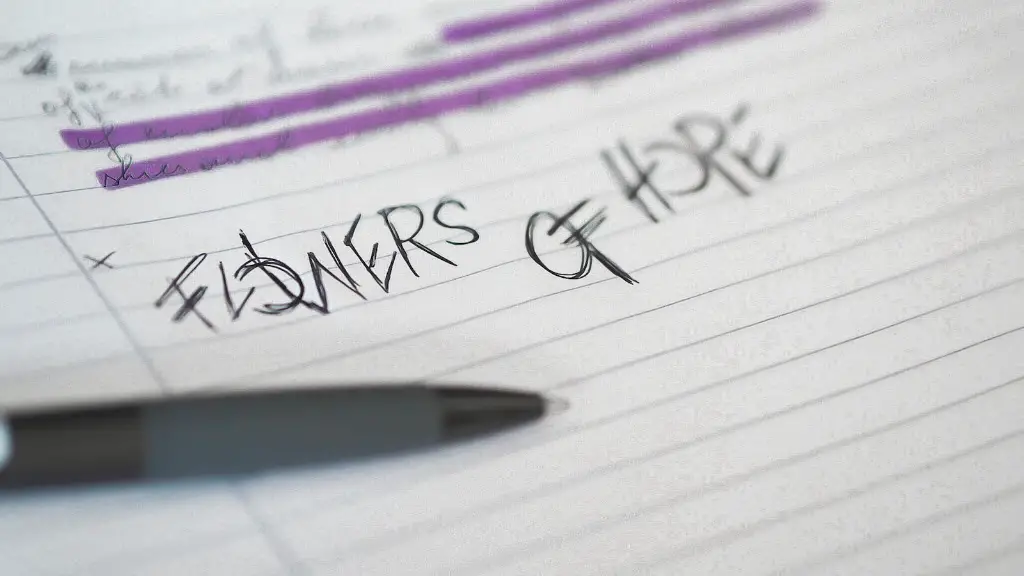Uses of Poetry
Poetry has many uses, from simply entertaining us to helping us express our inner thoughts. There are three main purposes for writing poetry; to express and record our emotions, to deliver messages and to educate. To understand why we have poetry, we should first look at these different functions of poetry.
The most popular reason for writing poetry is to express and record our emotions. Poets are able to capture feelings, experiences and states of being that are often difficult to verbalise. Poems can help us to articulate feelings and reflect on events that have occurred in our lives. Writing poetry can bring understanding, clarity and even a sense of peace to difficult emotions. For example, Maya Angelou’s poem “Still I Rise” is a powerful testament to strength and resilience. The poem’s message has been used to give hope to those who are facing difficult circumstances, providing an emotional comfort that can be difficult to articulate.
Another reason why we have poetry is that it can be used to send messages to a wide variety of audiences. Poems can be used to inspire, challenge and even oppose ideas. Poetry has been an influential tool in change and social justice movements as it can convey powerful emotion and sentiment in a concise and emotive way. Maya Angelou’s “Still I Rise” is an example of how her powerful imagery and words can be used to send a powerful message and act as a source of inspiration for readers.
Finally, poetry can be used to educate. Before poetry was written down, it was used to educate people in the form of oral poetry, such as traditional oral stories. Historically, poets would be able to capture the main themes of a certain story and use creative language to captivate an audience. After it was written down, poetry was often studied in schools and colleges as a form of literature. Studying poetry can help people to gain an understanding of the process of writing and creating literature, but also inform their knowledge of the topics that poems often explore, such as history and culture.
Forms of Poetry
One of the most interesting aspects of poetry is that it can take many different forms. This flexibility makes it a powerful tool for expressing, spreading and educating. From sonnets to free verse, each form of poetry requires its own unique set of techniques and conventions, yet all have the potential for engaging the audience on a powerful emotive level.
The sonnet is one of the oldest common forms of poetry. Its fourteen lines long and is usually written in iambic pentameter. It follows a strong structure of an octave and sestet, with the ninth line typically being a ‘turn’, or volta. The contents of a sonnet can explore many topics, with one of the most common being love.
Free verse is also popular, often being used to give a freer and more contemporary approach to poetry. Free verse is a way of writing poetry without any specific form or structure. This can create more creative and imaginative works, as the poet can focus on the chosen topic and craft their words without structurally predetermined boundaries.
Another form of poetry is lyrical poetry. After poetry was written down and spread around the world, it was used to write songs. This has led to ‘lyrical poetry’, or poetry that is written to be sung or read to music. This type of poetry is often known as ‘lyri’, or ‘verse’. It has been used to write love songs, protests, and commentaries on events, as well as many other themes.
Impact of Poetry
Poetry has had a lasting impact on the people who read it, writers who create it and wider society. Writing poetry has given people a form of expression that has been shared and understood by different people around the world. By reading and creating poetry, it may help some people to gain an understanding of themselves, or an insight into the lives of other people.
It has also been argued that reading and writing poetry can help to educational development. It helps to improve our vocabulary, language and understanding of literary techniques, enabling us to express our own thoughts and opinions in more articulate ways.
Finally, poetry has also had an impact on wider society and popular culture. Many poets make an impact through their work, for example Maya Angelou’s poem “Still I Rise” is often used to empower those facing difficult circumstances, providing a message of hope and strength. Through her work, Angelou has helped to understand and define what it means to be strong and resilient. The legacy of her work is still strong today, continuing to inspire and comfort those who need it.
Techniques of Poetry
The techniques used in poetry can be both creative and technical. When writing a poem, poets often begin by exploring a certain topic and choosing a particular point of view. In order to express their chosen topic in a creative manner, they might use emotive language, imagery and rhyme. Crafting the poem this way can allow the reader to gain a deeper understanding of the topic and provide a unique way of expressing their emotion.
In terms of the technical aspect, poets have to consider the form and structure of the poem. As mentioned above, poems can either follow a specific form or be completely free in its structure. Depending on the chosen form of the poem, the writer may have to be aware of the technical constraints that come with it. For example, if writing a sonnet, the poet will have to consider the structure of the poem as well as the hierarchy of the rhyme scheme.
The use of different poetic devices is also a key creative technique. These include metaphors, similes, oxymorons, alliteration and much more. By using these devices, poets are able to create a lasting effect and give clarity and detail to the poem, therefore allowing their message to be more engaging and powerful.
Purposes of Poetry
An important question to consider when looking at why we have poetry is the purpose or goal for the poem. Poems can be written for many reasons, and so it is important to consider the poet’s intention. It is also important to consider the audience of the poem, as this will determine the form and style in which it is written.
The most popular purpose of poetry is to express emotions, such as sadness, joy, happiness and more. Other common purposes include criticism of current issues, such as political or environmental issues. Poems may also be written to educate or inform the audience, providing knowledge on particular topics, such as history or culture. Poetry can also be used to narrate stories and share experiences, allowing readers to view the world through the poet’s eyes in an emotive and often powerful manner.
Finally, some poems may be written as an outlet for the poet’s own emotions. Writing poetry can be a therapeutic experience as it allows the writer to explore and express their feelings in a creative way. It can also be a way to reach out of those who feel like they have no voice and provide them with the courage to express themselves.
Response to Poetry
As with any form of writing, the response to poetry can vary significantly. Particularly with emotive poems, readers may find some comfort in the words as they can relate to the feelings expressed in the poem. As people often struggle to express themselves, these poems can act as an outlet, giving people the courage and clarity to articulate their emotions.
However, the response to poetry can be quite a personal experience, as not everyone will find the same comfort or understanding in the same poem. Some may disagree with the poet’s views and perspectives, while others may not be able to relate to the feelings expressed in the poem. Ultimately, people’s reactions can depend on the poem itself, the poet’s intention and the reader’s own experiences.
Relevance of Poetry in Today’s Society
In today’s society, poetry is still relevant as it has the potential to inform and educate audiences, as well as provide comfort and inspiration. In a world full of technology, information and disruption, people may struggle to express their feelings. In times such as these, a poem can provide someone with the courage and clarity to articulate themselves, and can give them the comfort they need when times are difficult.
Poetry can also still provide protest and criticism against current issues. For example, poets such as Amanda Gorman have written powerful poems that comment on the state of today’s world. Her poem “The Hill We Climb” has been seen to send a powerful message of unity in the wake of upheaval, providing hope for a better future for humanity.
Through its flexibility, poetry still has the potential to be a powerful tool for expression, delivering messages and educating. Its ability to engage its audience is just as strong today as it has been in the past. The legacy of poetry, the comfort it brings and the critical messages it conveys are just some of the reasons why we still have poetry today.
Representation of Poetry
When looking at why we have poetry, it is important to consider how different people are represented in the world of poetry. In the past, women poets and poets of colour have been underrepresented in the world of literature, despite their immense contributions to the genre. Even today, there is further work to be done to ensure that all voices are represented in the world of poetry.
Moreover, it is essential to consider the way in which language-minority poets are represented in poetry. Poets from non-English speaking backgrounds may struggle to be heard and understood due to the lack of resources, such as translations into English. As such, there is an urgent need to ensure that language-minority groups are being represented and given the attention they deserve.
In order to create an equitable and diverse representation of voices in poetry, it is important for publishers, academics and passionate individuals to work together. By providing grants, support and publicising work by underrepresented voices, more people will receive the credit that they deserve and ensure that their work is heard and understood.
Questioning the Value of Poetry
Finally, when questioning why we have poetry, it is important to consider the value that it has in our lives. In an age where technology, disruption and uncertainty are abundant, poetry has the potential to provide comfort and hope to different people, giving them a voice to express and articulate their thoughts, feelings and experiences.
The value of poetry should not be underestimated, as it has the potential to provide understanding, entertainment, education and inspiration. Without poetry, the depth, complexity and beauty of the language would be lost, and with this, it could become increasingly difficult for us to express ourselves in our own unique way.
Ultimately, poetry will remain important in our lives due to its unique ability to capture emotion and provide us with a unique way of expressing ourselves. By looking at and enjoying the works of poets from around the world, we can learn to gain understanding of different cultures, and further appreciate the power, depth and beauty of the language itself.





